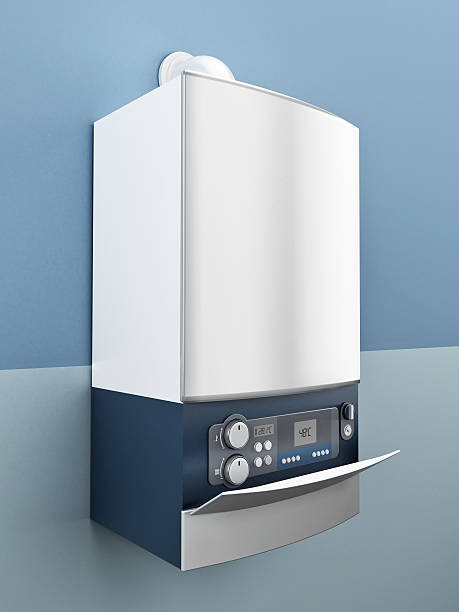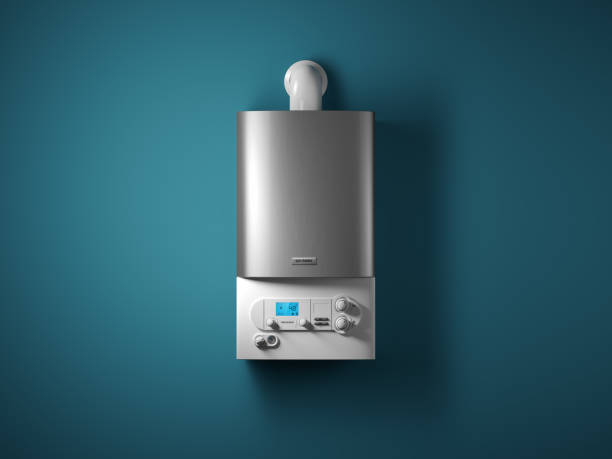Whether you’re heating an office, a warehouse, or a multi-site operation, choosing the right boiler is crucial to energy efficiency and operational costs. In the UK, where heating accounts for a significant portion of energy usage, understanding your boiler options can help you lower bills and reduce carbon emissions.
At Scalex Technology, we help businesses make smarter utility decisions—including heating solutions. Here’s everything you need to know about the different types of boilers available to UK businesses.
Why Choosing the Right Boiler Matters
The wrong boiler can lead to:
- Higher energy costs
- Poor performance during peak usage
- Maintenance issues
- Excess carbon emissions
The right boiler, on the other hand, improves efficiency, comfort, and compliance with Net Zero targets.

Main Types of Boilers in the UK
1. Combi Boilers (Combination Boilers)
How it works:
Heats water directly from the mains without a storage tank.
Best for:
Small businesses or premises with limited space.
Pros:
- Compact design
- Instant hot water
- No need for water tanks
Cons:
- Not ideal for high hot water demand
- Can struggle in multi-tap setups
2. System Boilers
How it works:
Uses a cylinder to store hot water but takes water from the mains.
Best for:
Medium-sized businesses or those with multiple bathrooms or kitchen areas.
Pros:
- Better for higher hot water demand
- Faster heating than conventional boilers
- No need for a cold water tank
Cons:
- Requires storage space for the cylinder
- Limited hot water depending on cylinder size
3. Conventional Boilers (Regular or Heat-Only)
How it works:
Uses a cold-water storage tank and a hot water cylinder.
Best for:
Larger commercial premises or older buildings with traditional systems.
Pros:
- Ideal for premises with high hot water usage
- Compatible with solar thermal systems
- Works well with low-pressure systems
Cons:
- Requires more space
- Slower to heat water
- More components mean more maintenance

4. Condensing Boilers
How it works:
Captures and reuses heat from exhaust gases that would otherwise be lost.
Available as:
Combi, system, or conventional models.
Pros:
- Highly efficient (up to 90%+)
- Lower carbon emissions
- Reduces heating bills
Cons:
- Slightly higher upfront cost
- Requires a suitable drain for condensate
5. Electric Boilers
How it works:
Uses electricity to heat water—ideal where gas is not available.
Best for:
Small commercial sites or off-grid locations.
Pros:
- No emissions on-site
- Compact and quiet
- Easy installation
Cons:
- Higher running costs (electricity is more expensive than gas)
- Not suitable for large premises with high heating demand
Commercial vs Domestic Boilers: Key Differences
| Feature | Commercial Boiler | Domestic Boiler |
|---|---|---|
| Output | 70kW and above | Below 70kW |
| Design | Built for durability and scale | Designed for home use |
| Applications | Offices, factories, schools, etc. | Homes and small flats |
| Maintenance | Requires specialist servicing | Standard annual servicing |
How to Choose the Right Boiler for Your Business
Choosing the right boiler depends on:
- Size of your premises
- Hot water demand
- Space availability
- Existing infrastructure
- Energy efficiency goals
At Scalex Technology, we assess your site’s needs and recommend the most cost-effective and sustainable boiler solution.
Smart Boiler Management = Better Energy Control
✅ Pair your boiler with smart heating controls
✅ Monitor usage with automated meter readings (AMR)
✅ Schedule maintenance checks to ensure efficiency
✅ Explore renewable heating alternatives like air-source heat pumps
Need Help Choosing or Upgrading Your Boiler?
Our experts at Scalex Technology can guide you through:
- Boiler selection and sizing
- Supplier and installer comparison
- Ongoing energy monitoring
- Integration with Net Zero strategies
🔧 Get Expert Advice on Your Business Boiler System
Whether you’re upgrading a failing system or designing a new installation, we’re here to help your business stay warm, efficient, and compliant.
👉 Contact Scalex Technology today for a no-obligation consultation.
